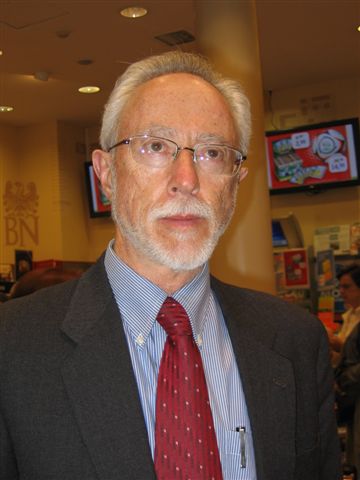J. M. Coetzee citations célèbres
Michael K, sa vie, son temps , 1983
Foe , 1986
Cotes sur le temps de J. M. Coetzee
Au cœur de ce pays , 1976
En attendant les barbares , Angleterre 1980, Afrique du Sud 1981
Au cœur de ce pays , 1976
L'Homme ralenti , 2005
J. M. Coetzee Citations
Foe , 1986
“…en venant au monde, chaque créature porte en elle le souvenir de la justice.”
En attendant les barbares , Angleterre 1980, Afrique du Sud 1981
“Je suis un de ces êtres heureux qui échappent à toute vocation.”
Michael K, sa vie, son temps , 1983
Elizabeth Costello , Huit leçons</small>,<small> 2004
Elizabeth Costello , Huit leçons, 2004
Au cœur de ce pays , 1976
Elizabeth Costello , Huit leçons, 2004
L'Homme ralenti , 2005
Foe , 1986
Foe , 1986
Elizabeth Costello , Huit leçons, 2004
L'Homme ralenti , 2005
“Quel oiseau a le cœur à chanter, dans un buisson d’épines?”
En attendant les barbares , Angleterre 1980, Afrique du Sud 1981
“…les autres volent vers moi comme des feuilles, mais je les balaie.”
En attendant les barbares , Angleterre 1980, Afrique du Sud 1981
“Ce n'est pas la parole qui fait de l'homme un homme, mais la parole des autres.”
Au cœur de ce pays , 1976
Michael K, sa vie, son temps , 1983
Scènes de la vie d'un jeune garçon , 1997
Scènes de la vie d'un jeune garçon , 1997
J. M. Coetzee: Citations en anglais
Life & Times of Michael K (1983)
Contexte: He closed his eyes and tried to recover in his imagination the mudbrick walls and reed roof of her stories, the garden of prickly pear, the chickens scampering for the feed scattered by the little barefoot girl. And behind that child, in the doorway, her face obscured by shadow, he searched for a second woman, the woman from whom his mother had come into the world. When my mother was dying in the hospital, he thought, when she knew her end was coming, it was not me she looked to but someone who stood behind me: her mother or the ghost of her mother. To me she was a woman but to herself she was still a child calling to her mother to hold her hand and help her. And her own mother, in the secret life we do not see, was a child too. I come from a line of children without end.
Life & Times of Michael K (1983)
Contexte: Though this is a large country, so large that you would think there would be space for everyone, what I have learned from life tells me that it is hard to keep out of the camps. Yet I am convinced there are areas that lie between the camps and belong to no camp, not even to the catchment areas of the camps — certain mountaintops, for example, certain islands in the middle of swamps, certain arid strips where human beings may not find it worth their while to live. I am looking for such a place in order to settle there, perhaps only till things improve, perhaps forever. I am not so foolish, however, as to imagine that I can rely on maps and roads to guide me. Therefore I have chosen you to show me the way.
“Perhaps if one flew high enough, he thought, one would be able to see.”
Life & Times of Michael K (1983)
Contexte: I could live here forever, he thought, or till I die. Nothing would happen, every day would be the same as the day before, there would be nothing to say. The anxiety that belonged to the time on the road began to leave him. Sometimes, as he walked, he did not know whether he was awake or asleep. He could understand that people should have retreated here and fenced themselves in with miles and miles of silence; he could understand that they should have wanted to bequeath the privilege of so much silence to their children and grandchildren in perpetuity (though by what right he was not sure); he wondered whether there were not forgotten corners and angles and corridors between the fences, land that belonged to no one yet. Perhaps if one flew high enough, he thought, one would be able to see.
“A book should be an axe to chop open the frozen sea inside us.”
Source: Summertime
Source: Disgrace (1999), p. 3-4
Contexte: Although he devoted hours of each day to his new discipline, he finds its first premise, as enunciated in the Communications 101 handbook, preposterous: 'Human society has created language in order that we may communicate our thoughts, feelings, and intentions to each other.' His own opinion, which he does not air, is that the origins of speech lie in song, and the origins of song in the need to fill out with sound the overlarge and rather empty human soul.
“Pain is truth; all else is subject to doubt.”
Source: Waiting for the Barbarians
“Was it serious? I don't know. It certainly had serious consequences.”
Source: Disgrace
“Our lies reveal as much about us as our truths.”
Source: Slow Man (2004)
“Degrees of obscenity,” she replies.
Source: The Lives of Animals (1999), pp. 43-44
